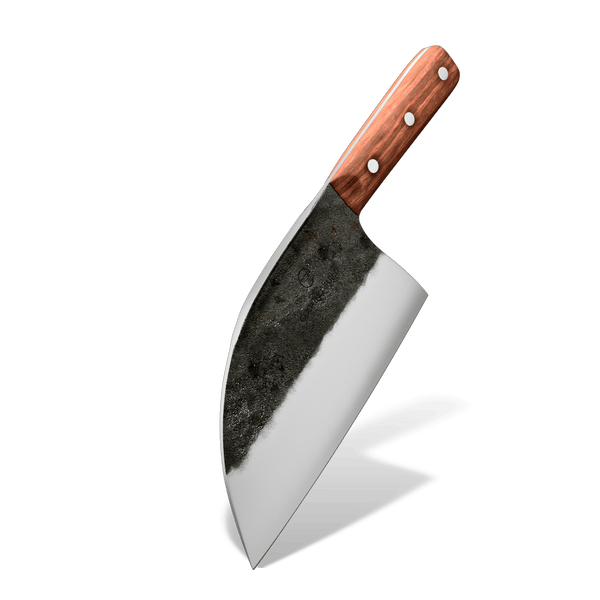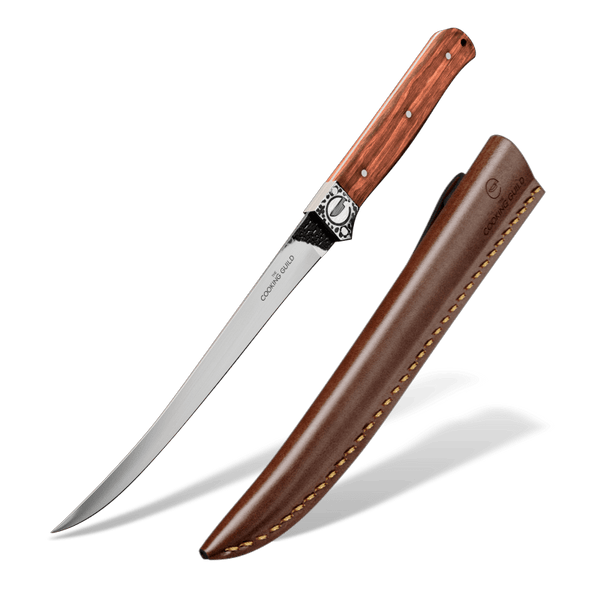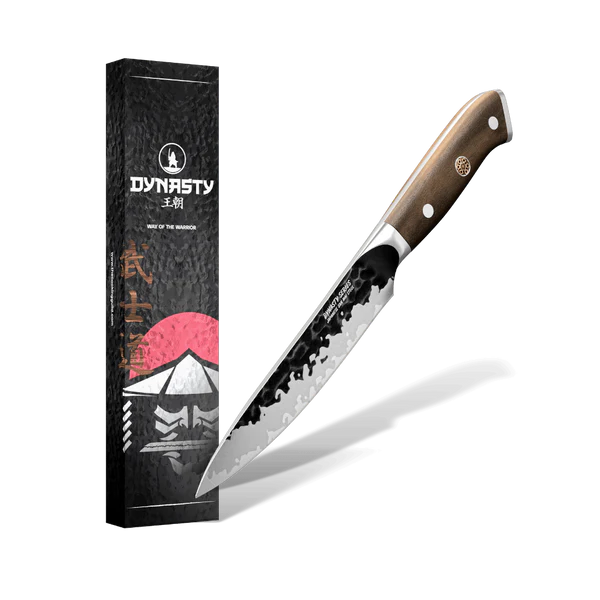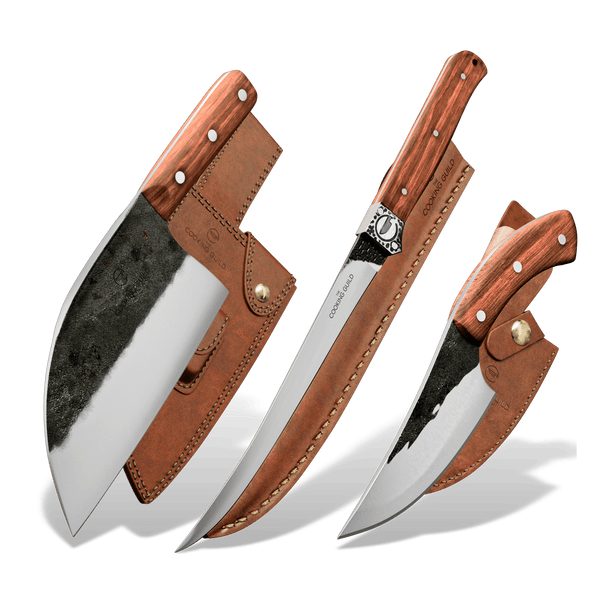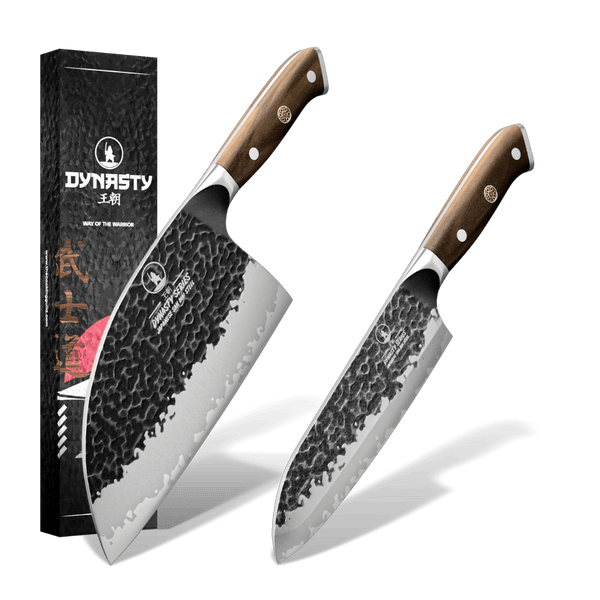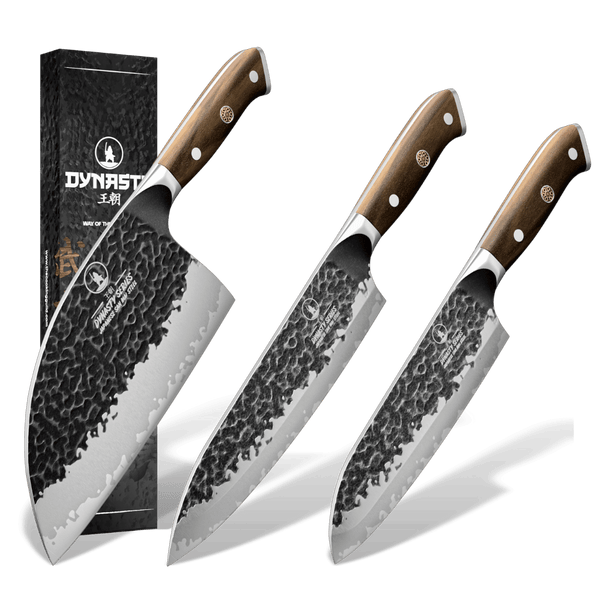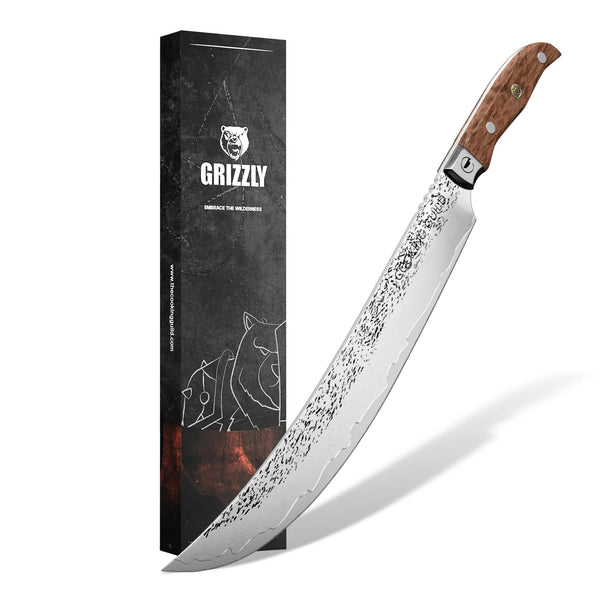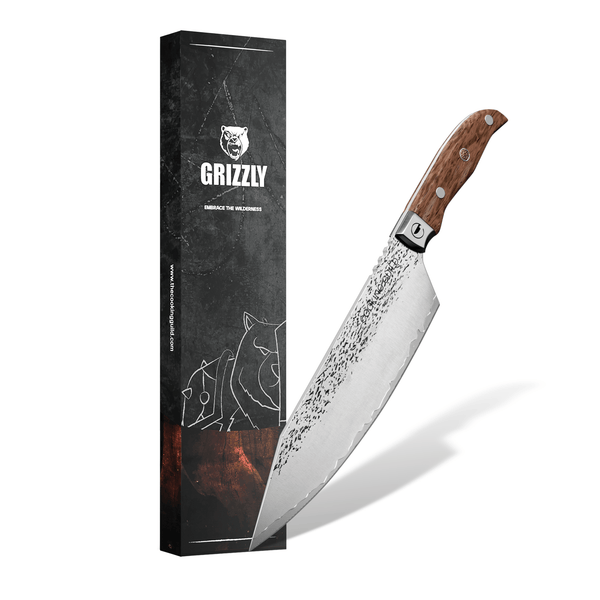In the heart of every kitchen, whether it's bustling professional kitchens or the cozy corners of home cooking spaces, lies the soul of culinary creativity: the knife.
As a chef or a culinary enthusiast, your Cooking Guild knives are not just tools; they are extensions of your culinary expressions, enabling you to slice, dice, and craft with precision and passion.
However, like any valuable companion, they require care and attention to maintain their sharpness, durability, and reliability.
Each type, with its unique design and purpose, demands specific maintenance routines to uphold its performance and extend its lifespan. Let's dive into the art of knife maintenance, ensuring your cherished culinary partners remain in prime condition, ready to bring your culinary visions to life.

Hand Forged 8" Chef's Knife
Understanding Your Cooking Guild Knives
Before diving into maintenance, let's understand the types of knives and their uses:
- Cleavers: Heavy-duty knives designed for chopping through bone and tough materials. Their robust build requires proper maintenance to keep them sharp and effective.
- Chef Knives: The all-rounder of the kitchen, used for chopping, slicing, and dicing a variety of foods. They are the backbone of culinary tasks and need regular maintenance.
- Santoku & Bunka: Japanese-style knives with a straighter edge, ideal for precise cuts and chopping vegetables. Their unique design calls for careful handling and maintenance.
- Fillet Knives: Thin, flexible knives used for filleting fish and slicing delicate meat. Their precision demands attentive care and proper storage.
- Slicers: Long, thin knives designed for slicing cooked meats, bread, and cakes. They require a gentle touch and regular sharpening to maintain their edge.
- Paring Knives: Small but mighty, used for peeling, trimming, and detailed work. Despite their size, they need as much care as their larger counterparts.
Maintenance Tips for Every Knife
Cleaning
Always clean your knives immediately after use. Hand wash with warm soapy water and dry thoroughly with a soft towel. Avoid the dishwasher, as it can dull the blade and damage the handle.
Storage
Store your knives properly to protect their edges. Use a knife block, magnetic strip, or sheaths to keep them organized and safe. Avoid tossing them in a drawer, where they can get damaged.

Magnetic Knife Block

Magnetic Knife Strip
Sharpening
Regular sharpening keeps your knives in top condition. Use a whetstone, honing rod, or a professional sharpening service, depending on the knife type. Cleavers and Chef Knives may require more frequent sharpening due to their heavy use.
Honing
In between sharpening sessions, hone your knives with a honing rod to align the edge. This is particularly beneficial for Chef Knives, Slicers, and Santoku & Bunka knives.

Nomad Series 10" Honing Steel
Handling
Use the right knife for the right task to prevent damage. Avoid using your knives on hard surfaces like glass or stone, and never use them to pry open containers or cut through bone (except for cleavers).
Inspection
Regularly inspect your knives for any signs of wear or damage. Look out for chips, bends, or dullness in the blade. Early detection can save your knife from further damage.
Special Considerations
- Cleavers require a sturdy cutting board, preferably made of wood or plastic, to withstand their forceful cuts.
- Santoku & Bunka knives should be used with a forward and downward chopping motion, avoiding sideways movements that can damage their edges.
- Fillet Knives, being delicate, should be handled with care, especially when working around bones.
- Slicers work best with a sawing motion, which preserves their long, thin blades.
- Paring Knives should be kept sharp to handle detailed tasks with precision.
Maintaining your Cooking Guild knives is not just about keeping them sharp; it's about ensuring their longevity and maximizing their performance in your culinary adventures.
By following these maintenance tips, you'll ensure that each knife remains a reliable partner in your kitchen. Remember, a well-maintained knife is a chef's best friend.
Happy cooking, and here's to many more delicious creations with your impeccably maintained Cooking Guild knives!
